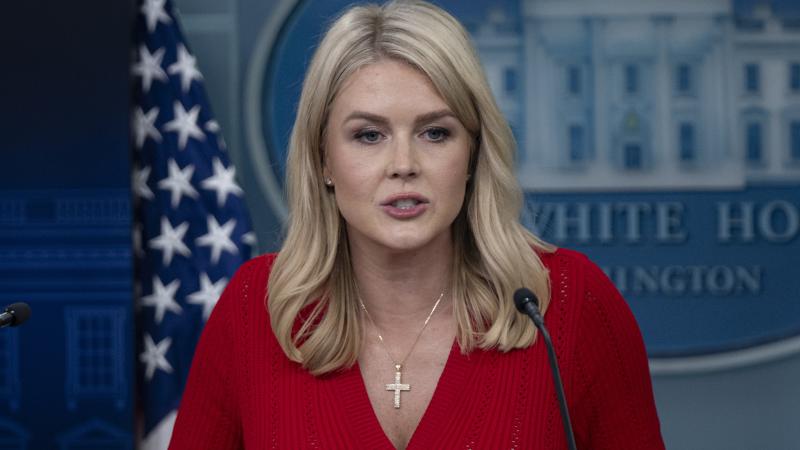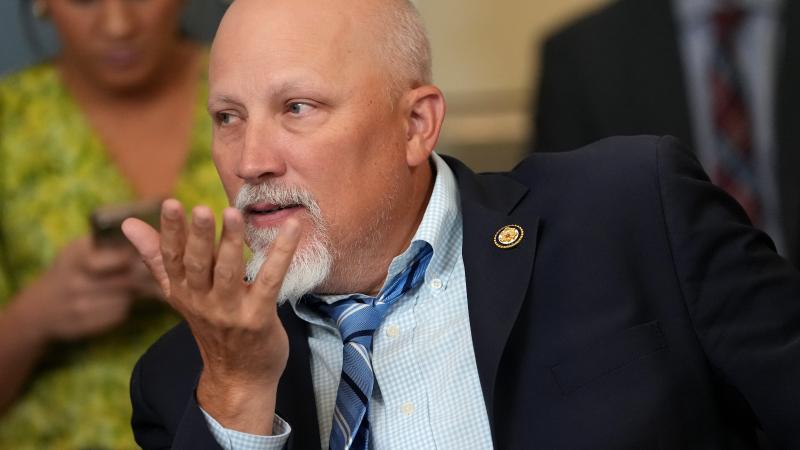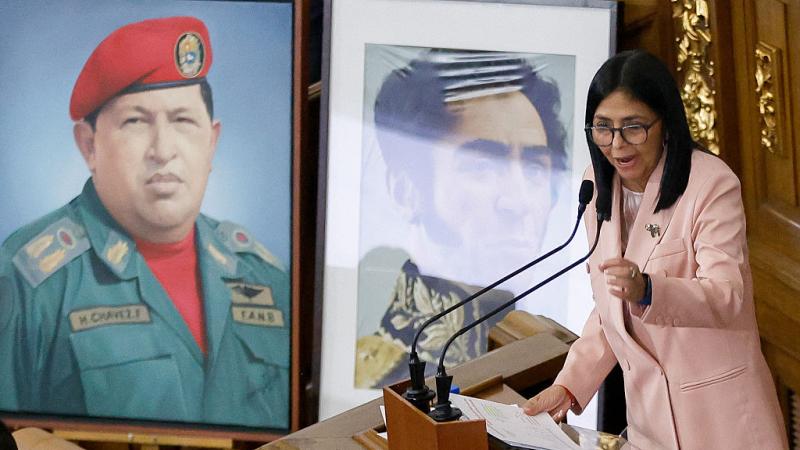Hillary Clinton's 'fake scandal' attack on Durham probe revives strategy from Whitewater era
As investigators built case that first lady gave inaccurate testimony two decades ago, she unleashed attacks to undercut prosecutors.
A quarter century ago as Whitewater prosecutors closed in on evidence that Bill and Hillary Clinton both gave factually inaccurate testimony, the then-first lady unleashed a blistering attack that stunned a capital city that in those days was far less rancorous.
Mrs. Clinton called the Whitewater probe "an effort to undo the results of two elections," claiming it was run by a "politically motivated prosecutor who is allied with the right-wing opponents of my husband."
Prosecutors have been "looking at every telephone call we've made, every check we've ever written, scratching for dirt, intimidating witnesses, doing everything possible to try to make some kind of accusation against my husband," she declared in that 1998 interview with NBC's "Today" show.
Twenty-four years later, Mrs. Clinton launched a similar attack on Special Counsel John Durham, the current federal prosecutor investigating the conduct of her 2016 campaign and its efforts to falsely portray Donald Trump as a Russian stooge.
Durham has indicted a lawyer for Clinton's campaign and revealed in a recent court filing that computer execs allied with her campaign exploited their access to Internet DNS data in an effort to spy on Trump and find derogatory information linking him to Russia.
She responded by calling the revelations "fake news" and suggesting they came close to meeting the "actual malice" standard for libel of public officials.
Former Whitewater Independent Counsel Robert W. Ray, who eventually wrote the final report accusing Mrs. Clinton of lying to investigators, found a healthy dose of déjà vu in her fresh attack on the Durham probe.
"I think one of the things that grew out of the independent counsel statute and the politicization of prosecution of, or investigation of, high-level government officials is that everybody came to the conclusion that the best way to defend was to go on offense in the political realm," Ray told Just the News in an interview on the John Solomon Reports podcast.
Ray said the goal of such attacks is "to undermine the legitimacy of the prosecutor, and also to turn public sentiment against the prosecutor, to the point where, you know, the public just feels relief and exhaustion over any efforts to hold anybody accountable."
"So that's the playbook," he said.
Ray succeeded original Whitewater Independent Counsel Kenneth Starr, whose investigation of the Monica Lewinsky affair led to President Bill Clinton's impeachment on grounds he lied in a federal deposition about having sexual relations with the White House intern.
Ray's completion of the investigation after impeachment closed the book on the core allegations about the Whitewater land deal in Arkansas, the Clintons' relationship with a failed Arkansas savings and loan known as Madison Guaranty, Mrs. Clinton's legal services for that S&L and other scandals wrapped into the probe, including the firing of the White House travel office staff in 1993.
While the Whitewater probe led to numerous convictions, including S&L owner and Whitewater business partner James McDougal, Ray ultimately decided there was insufficient evidence to indict either of the Clintons and sustain a conviction.
But his final report included a stinging rebuke of both Clintons, including findings that:
- Bill Clinton "knowingly gave evasive and misleading answers concerning" his relationship with Lewinsky.
- Hillary Clinton gave inaccurate testimony when she denied working on a legal document for the S&L known as an option agreement. ''Documentary evidence established that Mrs. Clinton did participate in the drafting of the option agreement,'' the report said.
- Hillary Clinton gave ''factually inaccurate'' testimony when she said her role in bringing Madison Guaranty to her Rose Law Firm was essentially to see that McDougal pay an outstanding bill.
- Hillary Clinton gave false testimony when she denied having input on the firing of the White House career travel office staff in 1993 after Bill Clinton became president. "The independent counsel concludes that Mrs. Clinton's sworn testimony that she had no input into Watkins' decision or role in the travel office firings is factually inaccurate," the report said.
- The appearance of missing Rose Law Firm billing records inside the Clinton White House residence after they had been subpoenaed by a grand jury raised serious concerns about obstruction of justice.
"There were some serious question about whether or not Hillary Clinton had told the truth to our investigators," Ray recalled. "And while ultimately I decided that it wasn't appropriate to bring a false statements or obstruction of justice prosecution, I did in the final report make findings."
Ray said the biggest lesson for Durham's probe from the earlier Whitewater probe is that the Clintons' political attacks in the court of public opinion can, and will, have an impact on the prosecutor's timeline to seek justice in the court of law.
"Even before you get to a five-year statute of limitations, I think it's just generally true ... that an investigation takes on a life, it has a course of years to accomplish its desired objectives. And then after that, it's really a case of diminishing returns," he said.
"Memories fade, the country moves on, the political process moves on," he continued. "So you know, you're not talking about a stretch of five years to be able to accomplish results. It's kind of in the 18-months-to-three-year category. You get in there, you do what you can do, and then you have to get out. And that's all the time that you have."
Ray said the current Durham probe has raised serious questions that need to be answered about whether the Clinton campaign was able to lure the FBI and intelligence community into impacting the electoral process by investigating Trump on a false premise.
"That's why it's so important to get to the bottom of this," he said. "I don't know whether or not John Durham will be able to pin the tail on the donkey."
The decisions inside the Clinton campaign to drum up the Russia collusion allegations "weren't made, you know, just in a vacuum," Ray said. "There were people who, obviously, were pulling those levers, and it's not clear whether they'll ever be able to hold those responsible, or accountable. But it doesn't diminish the fact that this is important.
"And it needs to be followed through, whether by this particular prosecutor or, ultimately, by Congress, should Republicans take control of the House and/or the Senate, in the midterm elections."















